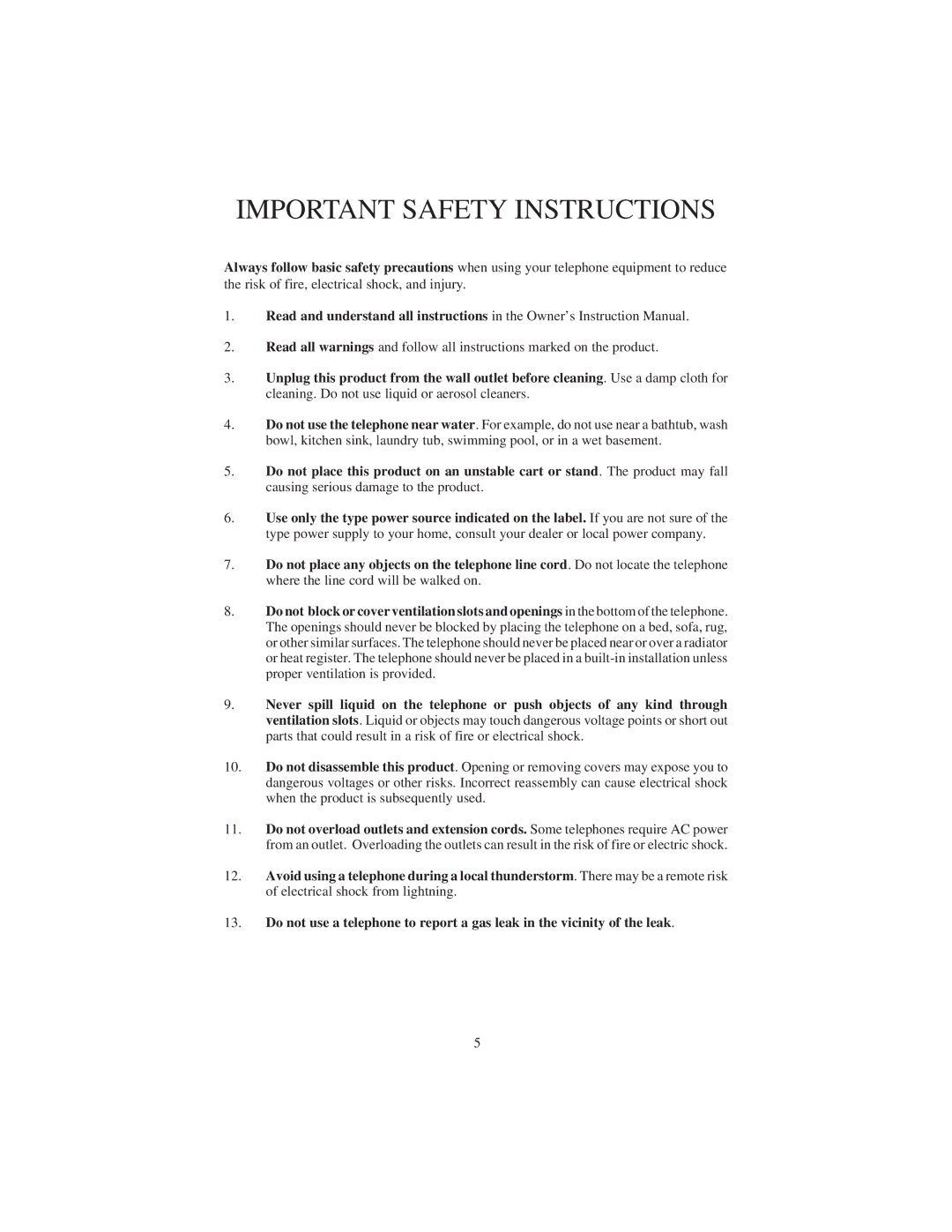IMPORTANT SAFETY INSTRUCTIONS
Always follow basic safety precautions when using your telephone equipment to reduce the risk of fire, electrical shock, and injury.
1.Read and understand all instructions in the Owner’s Instruction Manual.
2.Read all warnings and follow all instructions marked on the product.
3.Unplug this product from the wall outlet before cleaning. Use a damp cloth for cleaning. Do not use liquid or aerosol cleaners.
4.Do not use the telephone near water. For example, do not use near a bathtub, wash bowl, kitchen sink, laundry tub, swimming pool, or in a wet basement.
5.Do not place this product on an unstable cart or stand. The product may fall causing serious damage to the product.
6.Use only the type power source indicated on the label. If you are not sure of the type power supply to your home, consult your dealer or local power company.
7.Do not place any objects on the telephone line cord. Do not locate the telephone where the line cord will be walked on.
8.Do not block or cover ventilation slots and openings in the bottom of the telephone. The openings should never be blocked by placing the telephone on a bed, sofa, rug, or other similar surfaces. The telephone should never be placed near or over a radiator or heat register. The telephone should never be placed in a
9.Never spill liquid on the telephone or push objects of any kind through ventilation slots. Liquid or objects may touch dangerous voltage points or short out parts that could result in a risk of fire or electrical shock.
10.Do not disassemble this product. Opening or removing covers may expose you to dangerous voltages or other risks. Incorrect reassembly can cause electrical shock when the product is subsequently used.
11.Do not overload outlets and extension cords. Some telephones require AC power from an outlet. Overloading the outlets can result in the risk of fire or electric shock.
12.Avoid using a telephone during a local thunderstorm. There may be a remote risk of electrical shock from lightning.
13.Do not use a telephone to report a gas leak in the vicinity of the leak.
5
